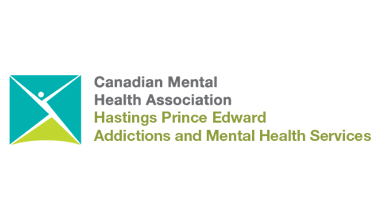
Mood Disorders - an Overview
Definition
Mood: A temporary state of mind or feeling.
Everyone has “moods”, high and low, and this is a good thing. A person’s mood can change from day to day or multiple times in a day, and be affected by any number of things- events, interactions with other people, good or bad news, how much you’ve eaten or exercised, the weather, how much sleep you got etc.
If you imagine mood to be like a sliding scale, with zero being the lowest mood possible (profound grief or numbness), and 10 being the highest mood (mania or euphoria), people typically move up and down the middle portion of this scale.
Some of us might spend more time in the lower part of the scale, while others might typically rest somewhere in the higher end. There is a wide range of “normal” when it comes to mood, and a healthy person typically experiences a healthy range of moods. Highs and lows are a normal part of life.
If someone has a mood disorder, however, it means that there is an issue with how they are experiencing moods. It might mean that they are “stuck” in a low mood (Depression), or that they seem to swing between the mood extremes (Bipolar Disorder) for no obvious reason. Someone with a Mood Disorder might find it hard to maintain a higher mood for any length of time and/or not be able to pinpoint or explain why their mood is low, as it seems to be out of their control. It can be extremely disruptive to a person’s life, and affect relationships, employment, school, family, goals etc.
Mood Disorders are common mental health issues. They describe a wide range of issues and symptoms, and each person may experience a mood disorder differently. Here is a list of some more common mood disorders, but it’s important to remember that most people don’t fit neatly into a “category”:
Types of Mood Disorders
Depression (Major Depression): When someone hasintense and ongoing feelings of sadness, apathy and low energy they might have a form of Depression. Depression can cause a disturbance in thoughts, feelings, behaviours and physical health that can limit your quality of life, affect relationships and limit your ability to get things done. Depression is more than being sad or feeling grief after a loss. There are subtypes of Depression, like Seasonal Affective Disorder (see below), Dysthymia (a longer lasting and sometimes less “intense” form of major Depression) or Postpartum Depression (a mood disorder associated with becoming a new parent).
Seasonal Affective Disorder (S.A.D.): When someone has episodes of depression that have a pattern of happening during a certain time of year (usually in winter) where the symptoms seem to go away after the season is over, they might have Seasonal Affective Disorder. Seasonal Affective Disorder is a type of Depression and is also referred to as 'seasonal depression,' 'winter depression,' or 'major depression with a seasonal pattern.'.
Bipolar Disorder: If someone has an ongoing pattern of experiencing great opposition in mood - like cycling between extremely high mood (mania or manic stage), followed by an extremely low mood (depressive stage), they might have a form of Bipolar Disorder. The changes in mood can be sudden, and are extreme enough that they interfere with a person’s ability to live their life.There are often periods of stability between episodes, and the frequency and speed of mood changes depends on the person or type of disorder they have.
Mood Disorders are not:
- Simply feeling sad or low - everyone feels sad or low at times.
- The result of any actions or personal failures of the individual.
- A sign or result of low intelligence or weakness.
- All the same. Symptoms differ between disorders and people.
Myths
Mood Disorders are sometimes misunderstood by people who don’t have direct experience with it. Because everyone feels “lows” and “highs” from time to time, people who don’t have a mood disorder might get them mixed up with feelings that are a normal part of life. Some common myths about Mood Disorders are:
Myth: Depression means feeling sad.
Fact: Depression isn’t the same as sadness, and people who have Depression don’t always feel “sad”. Sometimes Depression shows itself through anger, worry, aggression, or apathy (not feeling or caring about anything). These feelings may come and go. Sometimes people who have depression may even seem “fine” to family and friends.
Myth: Mood Disorders are all in your head. People who have a mood disorder just need to pull themselves together.
Fact: Telling someone with any mental illness to “pull themselves together” is like telling someone with poor eyesight to just try harder to see better. It just doesn’t work that way. There are factors at play when someone has a mood disorder that make it very difficult or impossible to maintain or “control” their mood without help.
Myth: If a person is depressed, there has to be a reason.
Fact: Depression is complicated. For some, it can seemingly come out of nowhere with no discernable “reason”, while others may have specific triggers. There doesn’t have to be an event or incident to cause Depression. Sometimes it just happens.
Myth: The manic phase of Bipolar Disorder is like feeling really happy, and is a nice break from feeling depressed.
Fact: The manic phase is not “fun” for many people living with Bipolar Disorder. The elevated mood someone has when they are in a manic phase can be disruptive and destructive. Many people who experience it describe sleeplessness, risky behaviour and doing or saying things that they later regret. Sometimes, mania can show itself in the form of anger or irritability. The manic phase can prevent someone from going to work or school or create situations that put a strain on relationships. Mania is not the same as feeling “really happy”.
Myth: Mood disorders are lifelong.
Fact: In most cases, Depression lasts for a limited period, and other mood disorders like Bipolar Disorder can be managed effectively. Treatment can lead to a full recovery. Some cases are life long, but not all. Statistically, mood disorders tend to improve as people grow older.
Myth: There is no need to go to a medical doctor for treatment. Mood disorders can be cured by will power, a holiday, or a great night of partying.
Fact: Will power cannot cure a mental illness. A depressed person experiencing lack of pleasure in their surroundings will not enjoy their holidays either. Substance use can worsen or complicate a mood disorder. Mood disorders are illnesses that should be treated by a doctor and social support from family, friends and community.
Myth: When a person with a Mood Disorder talks about suicide, they don’t really mean it.
Fact: Not all people with Mood Disorders attempt suicide, but suicide is a risk when someone is struggling with their mood. Most people who are thinking of suicide say something about it before attempting it. If someone you know, whether you know them to be depressed or not, is talking about suicide, take them seriously.
Myth: Postpartum Depression is normal and not a real illness.
Fact: Becoming a new parent is a major life event. When you pair that with lack of sleep, high expectations, massive hormonal changes and anxiety, feeling sad, lonely and overwhelmed can happen to anyone (whether you’re a mom or a dad). However, for many new parents, these “baby blues” can progress into a serious mental illness that requires support and treatment. Postpartum Depression and Anxiety are nothing to be ashamed of and are real health issues that are generally very treatable.
Myth: A good, healthy relationship can cure a Mood Disorder.
Fact: Although social support is an important part of recovery, most of the time it will not cure a disorder on its own. Even if you are giving your all as a supporter, there might still be days your loved one will experience feelings of being not good enough, or as if no one cares about them. Remember that often, this is their illness talking, not them. Remember that not matter how great you are, you cannot cure an illness. Your support is probably appreciated, even if it doesn’t always feel that way or your friend can’t communicate that to you clearly. They are not ill because you are “not good enough”. That being said, a good way to help is to listen, and learn as much as you can about the disorder and how you can help. There are lots of ways that you can support your friend through their recovery. You’re not there to cure them; you’re there to support them as they figure out their own path to recovery.
Myth: People who “have it all” (e.g. a supportive family, wealth, power, etc.) are not likely to develop a Mood Disorder.
Fact: Though poverty or family issues may be contributing factors for Mood Disorders, it can affect people across all social and economic levels. Many rich and famous people have been known to have a Mood Disorder. The causes vary, and can have nothing to do with how much money you have or how great your family is.
Myth: If I have a Mood Disorder or any other mental illness, I’m going to have to go to the hospital.
Fact: For some, spending time in a hospital for a mental illness is part of the treatment strategy and can be tremendously helpful. There’s nothing wrong with that! Others will never have to go to the hospital, as therapy, medication, group counselling or other strategies may be enough to help someone get better.
Myth: I have mood swings sometimes. It must mean I have Bipolar Disorder.
Fact: Healthy people experience a wide range of moods. Your mood is affected by all sorts of things, like what’s going on in your life, interactions you have with people during the day, whether or not you’ve eaten or exercised, how much sleep you got last night etc. Having Bipolar Disorder is different, because the cycles of mood are often sudden and/or unexplainable, prolonged and extreme to the point where it gets in the way of life.
Resources
The information on this page is a simple overview of a complicated health issue. The content has been taken from CAMH, CMHA, and the Mood Disorders Association of Canada. For more in-depth information, please visit these sources or speak to a medical professional.
Ontario – call ConnexOntario to find out where there are mental health supports in your community.
Crisis – in any situation where someone is at risk of hurting themselves or others, call 911 or a local crisis line.
- Author: mindyourmind
- Article Source: mindyourmind








